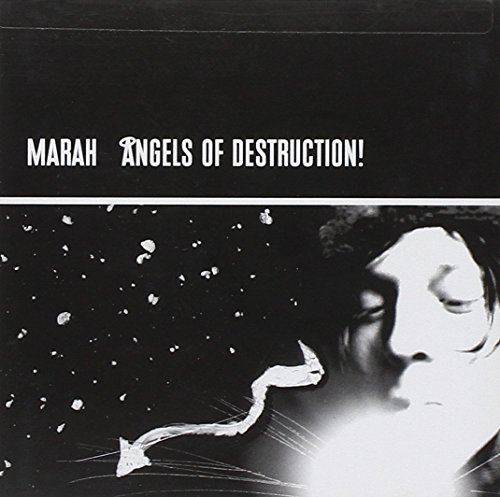
Marah
Angels Of Destruction
Release Date: Jan 8, 2008
Genre(s): Rock
Record label: Yep Roc
Music Critic Score
How the Music Critic Score works
Album Review: Angels Of Destruction by Marah
Very Good, Based on 2 Critics
Based on rating 8/10
Ten years and six albums on from their debut (not counting live discs and seasonal offerings), Marah are a significantly more mature and ambitious band than the scrappy Philly roots rockers of their youth, but while 2008's Angels of Destruction! is a rich, audacious set of songs dressed up in adventurous production and broadly dynamic arrangements, it shows that they're a group that has learned how to have it both ways, still reveling in the swagger and street smarts of their earliest work. David Bielanko and Serge Bielanko's songs play out on a broader musical canvas these days -- check out the Russian accordion figures and no wave synth patterns on "Angels on a Passing Train," the horn-bolstered guitar boogie of "Wild West Love Song," and the loud, proud bagpipe coda on "Wilderness" -- and the band makes the most of the talents of its newest member, Christine Smith, whose keyboards and backing vocals give Marah's performances a new depth. But the folks who populate David and Serge's songs have thankfully changed little over the years, and David sings their stories with a passion and honesty that make them both vivid and thoroughly believable, from the cops celebrating on a rowdy New Year's Eve to a romantic interlude played out over beers in somebody's kitchen.
Based on rating 3/5
Marah's loyal supporters, who include Nick Hornby and Bruce Springsteen, find some deep truths in the Philadelphia band's work, one presumes. But you'd need to have that pre-existing love for Serge and David Bielanko's music to draw anything much from their unremittingly competent seventh album proper. The lyrics are never quite specific enough to become universal, instead falling into the trap of Americana solipsism, while the music flirts with blue-collar ramalama rock without ever quite having the courage of its convictions.

